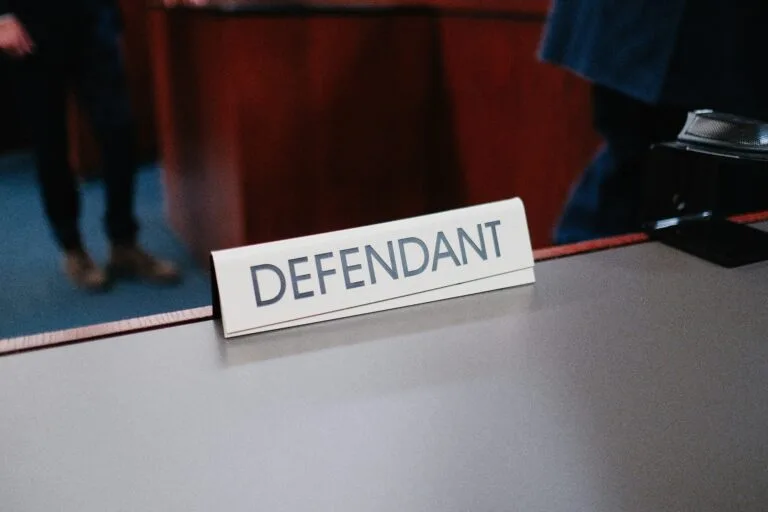Fighting criminal allegations is much like fighting an illness. When you are sick, your doctor cannot effectively treat you if you do not tell your doctor the truth about what is wrong with you and take the medication the doctor prescribes. You have to help your doctor treat you. Similarly, you have to do certain things help your defense attorney fight your charges. To ensure you get the best possible outcome for in this criminal case, here is what you need to do:
1. Keep your lawyer updated on your best contact information. At the beginning of any criminal case, be sure to get your lawyer’s phone number, email address, and office location. Your lawyer should be able to provide you with a business card immediately that has all this information. Once you get that information from your lawyer, use it. If you get a new phone number, tell him. Send a text. Shoot an email. Mail a letter, even. Your lawyer cannot effectively defend you if he or she cannot get in contact with you.
2. Tell your lawyer the truth. Anything you share with your lawyer about your case is protected by lawyer-client confidentiality. This means that your lawyer cannot tell anyone what you share about your case. If your lawyer does tell anyone what you shared without your consent, your lawyer could lose the right to practice law. The reason this rule exists is to encourage clients to share the truth with their lawyers. If you tell your lawyer one thing and the prosecution can prove the opposite at trial, your lawyer will not be as prepared as is necessary to give you the best defense possible. It is in your best interest to tell your lawyer the truth.
3. Do not talk to anyone besides your lawyer about this case. “Loose lips sink ships.” In this case, the “ships” may be your chances of getting a favorable plea offer or winning at trial. The police can interview anyone you have a conversation with about this case. Similarly, the prosecution can call anyone as a witness at trial and throw them in jail if they don’t agree to cooperate. It is in your best interest to not discuss this case with anyone besides your lawyer. This means: No texting anyone about the case; No posting on social media about the case; No speaking to your cell mate about the case; And especially no speaking about the case on jail phones (yes, those phones are recorded).
4. Respect no-contact orders. Similar to Client Responsibility 3, never, under any circumstances, speak to any of the witnesses or alleged victims involved in your case. If you speak to a witness in this case while the case is pending, it could be considered witness tampering. Not only will this make it harder for your lawyer to defend you, but the government will likely charge you with another felony.
If you speak to an alleged victim while this case is pending, the judge will likely consider that a violation of your bond. Not only could you be charged with additional felonies, but the judge will likely revoke your bond and you will spend the rest of the pre-trial period in jail. Not contacting the alleged victim means no contact through: Phone calls; Text messages; Letters; Social media; In-person meet ups; Having any of your family members contact the alleged victim or any of their family members; Or any other possible type of contact. If you see the alleged victim walking down the street, you turn around and go the other way.
5. Cooperate in your defense. Just like a doctor cannot diagnose you if you don’t answer their questions, your lawyer cannot defend you if you do not answer his or her questions. If your lawyer calls you, answer. If you cannot answer, call him back as soon as you can. He or she likely has a question for you that is important in your defense. Similarly, you need to show up for all court dates. If you do not, the court will issue a warrant for your arrest and you will end up in jail. It is especially important that you cooperate in your defense the closer you get to trial.
6. Provide your lawyer with all the documents he or she asks for. One of the most important ways you must cooperate in your defense is by providing your lawyer with the documents he or she asks you for. Every person, no matter what type of charges you are facing, should send your attorney the following documents: Proof of employment, enrollment in education, or SSDI; Character reference letters explaining that other people believe you do good in this world; And letters from any organizations you do community service with. You will also need to send your lawyer some documents specific to the type of charges you are facing.
To give some examples, if you are facing weapons charges you need to send your lawyer proof that you purchased the gun legally and/or registered it with the state. If you are facing drunk driving charges, you need to send your lawyer proof that you completed a driver’s safety course. If your alleged criminal activity was a result of your mental health or substance abuse issues, you need to send your lawyer proof that you are participating in counseling, Anon meetings, or that you have been to rehabilitation. If you are not sure exactly what documentation you need to send your lawyer, ask.
These responsibilities should seem like small, simple details – they are. Your lawyer will handle all of the legal and technical aspects of your defense. But your lawyer cannot give you the best defense possible without your help. When fighting for your freedom, every detail matters. To hire a lawyer who will walk you through each of your responsibilities and help you complete them, reach out to KBW Criminal Law as soon as an issue arises.
